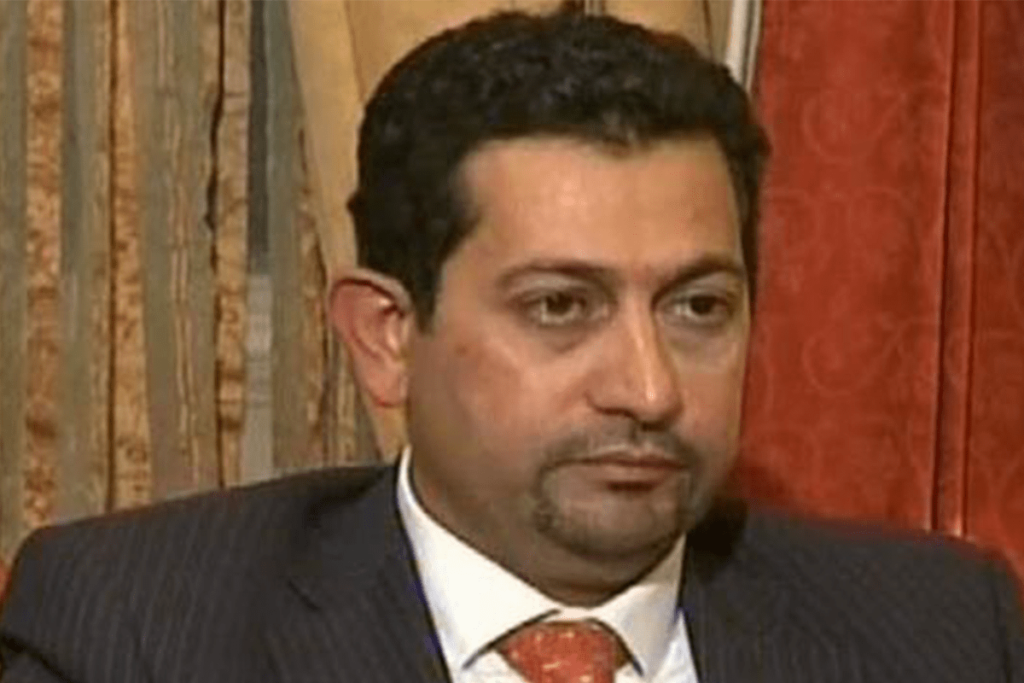FRESH AIR
Former Al-Jazeera chief compiles “blacklist” of journalists who support Israel-UAE and Israel-Bahrain deal
September 17, 2020 | Judy Maynard

The announcement of the normalisation agreements between Israel and the UAE and Bahrain, signed on Tuesday in Washington, gave rise to some unusual plain speaking by various Arab commentators on the subject of Palestinian rejectionism.
Saudi writer Hani Al-Zahiri, for example, accused Palestinian leaders of “looting” their people’s cause, profiteering from deliberately “not reaching an agreement” and “opposing every peace initiative”. Egyptian journalists Amina Khairy and ‘Imad Al-Din Adib criticised Palestinians for ostrich-like behaviour, failing to confront reality.
For Yasser Abu Hilala, this kind of outspokenness is not only unwelcome, but apparently deserves to be punished. As the former head of Al Jazeera, Qatar’s government-controlled and funded media mouthpiece, he is used to disseminating the official view from Doha. Though he left that position in 2018 – what exactly he is doing now is unclear – his recent social media posts inject a degree of chill into the thawing of long-held, unconstructive attitudes towards the Israeli-Palestinian conflict.
Abu Hilala has announced on Twitter that he is compiling a little list, for the benefit of which he wishes to know “who are the journalists, writers and politicians who supported UAE and Bahrain’s agreement to normalise relations with Israel”.
Saudi media organisation Al Arabiya criticised this as a “blacklist”, a claim denied by Abu Hilala. He prefers calling it a #NormalizersList, a term he can probably claim credit for inventing.
Several times in the twelve-part tweet, which is in English, Abu Hilala states that his list is for purposes of “documentation”, which he calls a “core element of journalism”, nonetheless leaving his readers in the dark as to the point of the exercise.
In a tweet in Arabic he demanded specific details: “We want the name of the writer or journalist attached to a picture of his article, post or tweet, not just mentioning the name.” When someone helpfully suggested “all the journalists and affiliates of Al Arabiya” and its sister channel Al-Hadath, major Saudi outlets, amongst others, Abu Hilala reiterated “This is an unscientific generalization, we need the name of the journalist or writer attached to an article, post, tweet, or position.”
When reading this it is helpful to know that the organisation Abu Hilala headed has just been declared an “agent of the Qatar government” by the US Department of Justice. Al Jazeera’s hip English language platform AJ+ has been ordered to register as a foreign agent because of its involvement “in political activities within the United States” where it “has acted and continues to act as a publicity agent … on behalf of the Government of Qatar and Al Jazeera Media Network.”
This puts AJ+ in the same basket as such other authoritarian regimes’ media channels as Russia’s RT and Sputnik, Turkish public broadcaster TRT and five Chinese state media outlets.
A recent but little-watched video on YouTube claims Abu Hilala is currently running a large group of media platforms to “demonise” opponents of Qatari policy. He himself is evasive about his current role, describing himself on Twitter merely as a “columnist and journalist”.
Whatever the truth of this, we do know that Abu Hilala’s views are in sync with those of his previous (and possibly current?) employer. He says, modestly, “I have the courage to say that normalisation agreements are a betrayal of the Palestinians’ rights that are supported by the United Nations resolutions + the Arab Peace Initiative.”
The Qatari government often displays a reticence to broadcast its position, leaving this to media mouthpieces like Al Jazeera, whose coverage of the Israel-UAE accord has been strongly negative, as I previously documented. But even Doha has now come out publicly stating its opposition to the normalisation deals.
Meanwhile, in a development earlier this year which Amnesty International described as “deeply troubling”, Qatar introduced new laws further curbing already highly restricted freedom of expression in that country.
The “documentation” by Al Jazeera’s former head of all journalists who failed to back Qatar’s stance of opposing normalisation with Israel should be yet more proof, if any is needed, that Al Jazeera’s reputation in some circles as a professional news network comparable to Western state-funded broadcasters like the ABC or BBC, is wildly off base.
Tags: Al-Jazeera, Gulf states, Israel, Qatar
RELATED ARTICLES

‘Time’s up for talk’: Joel Burnie discusses Antisemitism Envoy’s report on Sky News

‘Optimism’ for Hamas to ‘exile’ their power and create a permanent ceasefire with Israel: Joel Burnie on Sky News

Australian government’s response to Iran-Israel conflict ‘disappointing’: Paul Rubenstein on Sky News




















